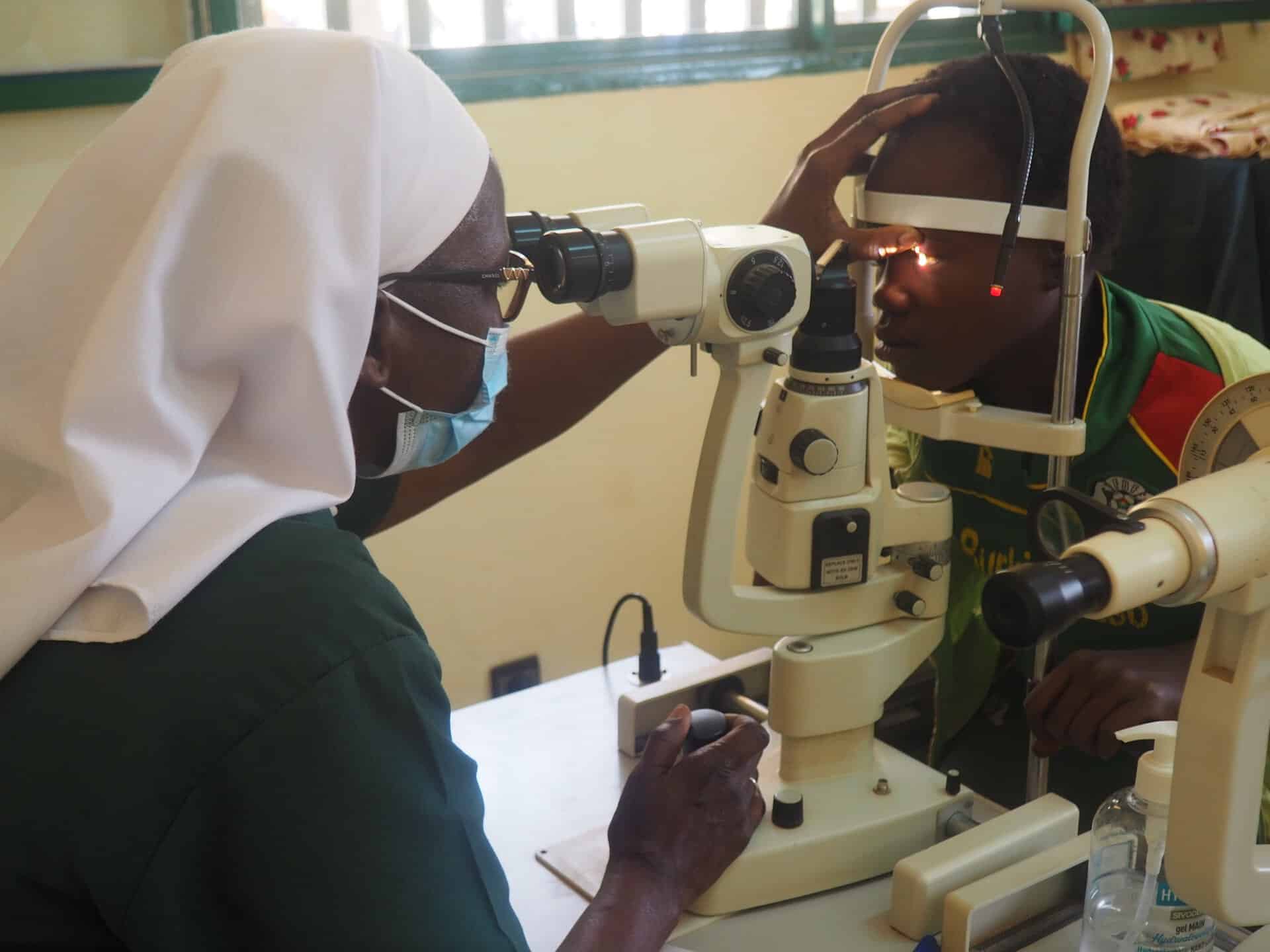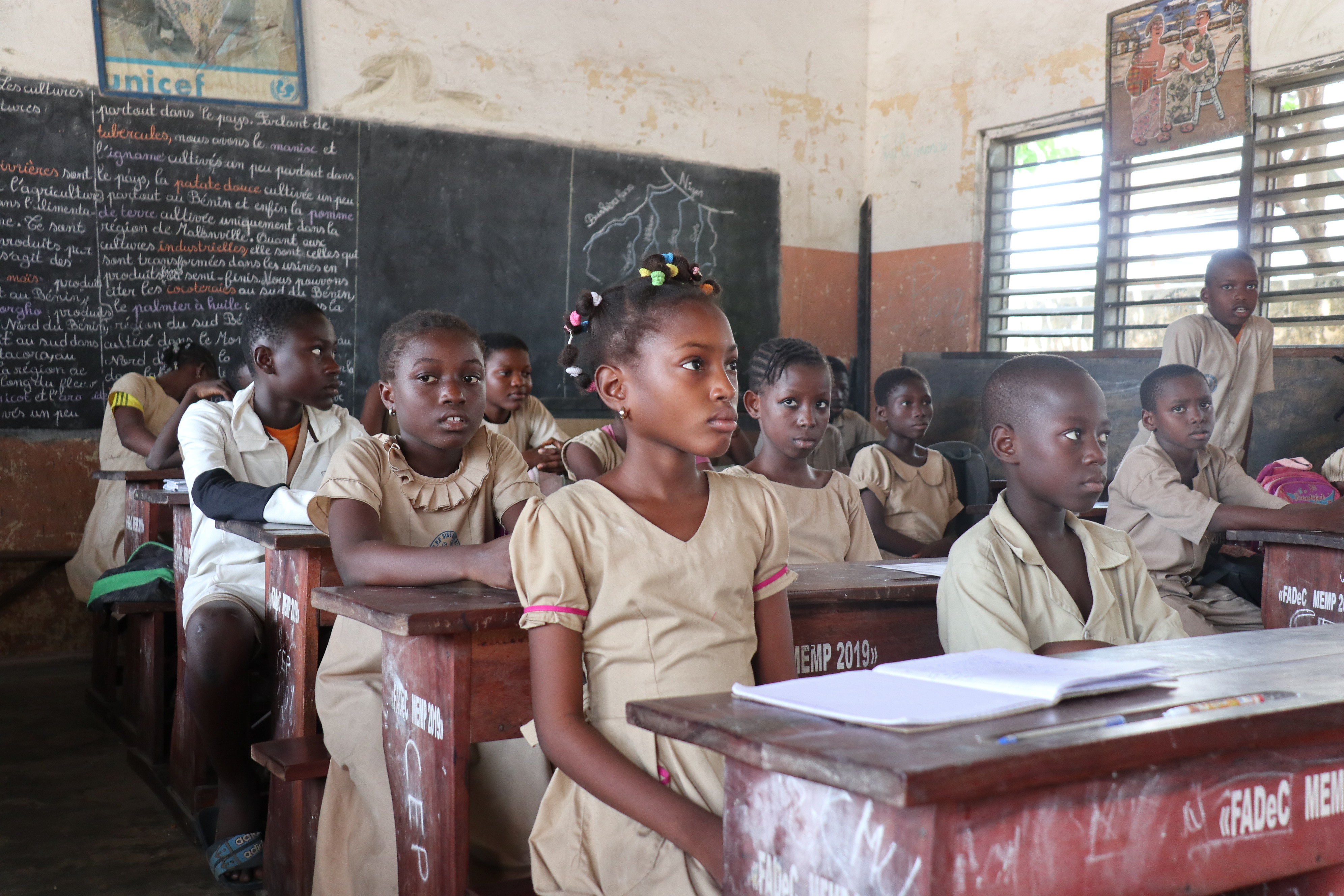When it comes to development, there have been some appalling setbacks. 2025 was supposed to mark the end of child labour, as pledged by the signatory states of the United Nations (UN) Sustainable Development Goals in 2015. But the Covid-19 pandemic and its economic and social consequences have instead amplified the scourge. Today, 160 million children are forced to work and have their fundamental rights violated.. For over 40 years, Action Education calls on governments to put an end to this tragedy and is developing programmes to protect these children from all forms of exploitation.
Our programmes to combat child exploitation
Internal migration in India and protection of families
In India, Almost 100 million people are considered to be seasonal migrant workers. They include 10 to 15 million children are in an extremely vulnerable situation. Displaced at the whim of family movements, settled in unhealthy and dangerous shanty towns near factories, no longer attending school; their idleness, isolation and lack of a framework make them easy prey for all forms of exploitation, and they are often forced to work.
To provide them with the best possible support and protection, in 2017 Action Education formed a local partnership with the government and the Telangana Brickworks Association to offer them a suitable educational solution. childcare centres directly in shantytowns or on building sites where the parents work. The children, aged 0 to 6/7, were cared for from morning to night by specialist educators who spoke their native language and ensured that their fundamental rights in terms of access to care, food, play and early learning were guaranteed. Convinced of the benefits of the programme by our teams, the owners of the brick factories agreed to support the programme, and the parents were relieved to see their young children looked after, cared for, fed and spared from child labour.
Unfortunately, the Covid-19 pandemic put a brutal brake on our efforts: the forced closure of our care and learning centres and the drastic increase in poverty forced parents to put their children back to work. Gradually, the reopening of reception centres for the children of migrant workers, set up by Action Education in 6 Indian towns, has enabled them to return to quality pre-school education.
" Chis year, as soon as I arrived, I was admitted to the reception centre set up at the briqueterie. I have dedicated teachers who offer us games and activities. I go to the centre every day, I enjoy the company of my friends and I'm very attentive. "explains Jayanti, a 10-year-old girl. Her parents are seasonal migrant workers from the state of Chattisgarh, who migrate to Telangana every year to work in a brickworks. For the last two years, Jayanti has had to stop her studies and help her parents make bricks.

The determination of local players committed to respecting children's rights and the support of Action Education are opening up new hope for Jayanti and thousands of other children.
Cambodia: education, a bulwark against child labour
Although one of the most dynamic countries in its region, Cambodia is particularly exposed to climatic crises, which widen the disparities between urban and rural areas, plagued by galloping poverty. In this context, the protection of children's fundamental rights, including the right to education, is still far from being achieved everywhere. The economic and social consequences of the COVID-19 pandemic, as well as rising energy and food prices, continue to weigh heavily on the most disadvantaged.
10 years ago, work was a reality for more than a third of children aged 5 to 14 in Cambodia, particularly domestic work. Back then, they had to combine schooling with exhausting tasks, and Action Education was already warning about this unthinkable equation. Today, the consequences The economic crisis following the pandemic is forcing more and more children to seek paid employment outside the home. (in rice fields, in factories, in construction or by selling what they find... when they don't join drug or sex trafficking networks), with the inevitable consequences of dropping out or dropping out of school.
Lhe Cambodian Consortium for Out-of-School Children, led by Action Education, in partnership with Educate A Childa worldwide programme run by the Education Above All Foundation, aims to get more than 116,000 out-of-school children into school.
Thanks to this innovative programme, we have supported 11,298 newly enrolled out-of-school children, providing them with larger learning spaces, school equipment and in-kind grants.
We also built 1 new school and 6 new classrooms, and refurbished 24 classrooms.
Other activities include food aid for vulnerable families, remedial classes for over-age and under-achieving pupils, equivalency classes and inclusive classes such as multilingual education and accelerated learning classes.
By raising families' awareness of the importance of education as a way out of poverty, training teachers in alternative teaching methods and equipping pupils with teaching materials available in several languages, we are combating all forms of child exploitation in Cambodia.
Burkina-Faso: putting an end to the hidden labour of thousands of girls
Child labour, contrary to the rights of the child enshrined in the CRCis a veritable epidemic. In Burkina Faso, Many girls who have dropped out of school or are not at school are forced to do domestic chores or work to contribute to their families' income.
With the support of the Fondation l'Occitane, the SCOLFILLE project run by Action Education offers young girls the opportunity to accelerated upgrading and reintegration into the mainstream education system to guarantee their right to quality education
Thanks to the project, young girls of school age are enrolled in the first year of primary school, those at risk of dropping out before the end of the cycle are supported, and older girls who are not enrolled in school (or who dropped out early) benefit from an innovative system of accelerated classes, combining the modules of the first 3 years of primary school over 9 months.
Rahinatou, who took part in the project, can testify to the radical change Action Education has brought to her life.e : "Before I enrolled in the SCOLFILLE project, I used to help my mother and the other women with chores around the house. Now I love school and I want to keep going. I love all the subjects. I want to become a teacher when I'm older so I can help the children.
As well as covering the costs of schooling (annual fees and supplies) and feeding children in the schools, Action Education raises awareness among families and wider communities of the importance of educating girls to develop their potential, rather than putting them to work. In addition, so as not to reduce household income, we encourage families living in extreme poverty to increase their income through subsidies and intermediation with micro-credit institutions.
The results of the SCOLFILLE project and testimonials like Rahinatou's are our greatest success:
- 2810 students were accompanied in Burkina Faso, including 2000 girls.
- 180 teachers trained.
- 500 families concerned.
Additional resources
- Combating child labour: why Action Education is asking governments to invest in education?
- In the face of child labour, let's increase spending on free, quality education!
- Child labour likely to increase due to COVID-19 pandemic
- Press release - 12 June, International Day Against Child Labour: COVID-19 could lead to millions more children working
- Economic crisis in Southeast Asia leads to increased child labour






